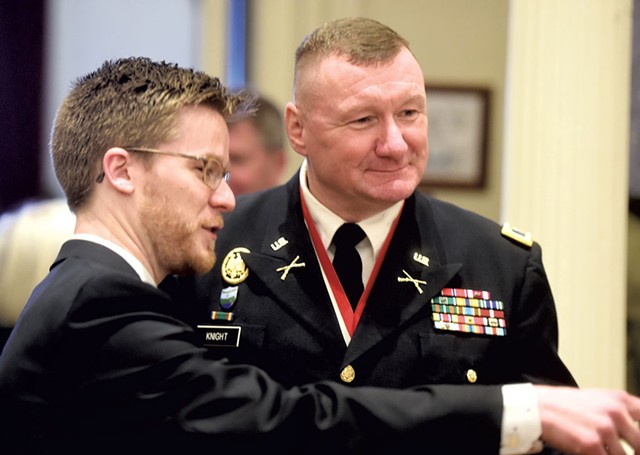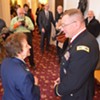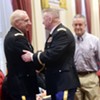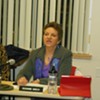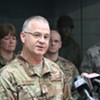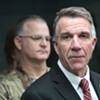Switch to the mobile version of this page.
Vermont's Independent Voice
- News
- Arts+Culture
- Home+Design
- Food
- Cannabis
- Music
- On Screen
- Events
- Jobs
- Obituaries
- Classifieds
- Personals
Browse News
Departments
-
Education

Scott Official Pushes Back on Former State…
-
News

Burlington Budget Deficit Balloons to $13.1 Million
-
Education

Senate Committee Votes 3-2 to Recommend Saunders…
- Court Rejects Roxbury's Request to Block School Budget Vote Education 0
- Norwich University Names New President Education 0
- Media Note: Mitch Wertlieb Named Host of 'Vermont This Week' Health Care 0
Browse Arts + Culture
View All
local resources
Browse Food + Drink
View All
Browse Cannabis
View All
-
Culture

'Cannasations' Podcaster Kris Brown Aims to 'Humanize'…
-
True 802

A Burlington Cannabis Shop Plans to Host…
-
Business

Judge Tosses Burlington Cannabiz Owner's Lawsuit
-
Health + Fitness

Vermont's Cannabis Nurse Hotline Answers Health Questions…
-
Business

Waterbury Couple Buy Rare Vermont Cannabis License
Browse Music
View All
Browse On Screen
Browse Events
Browse Classifieds
Browse Personals
-

If you're looking for "I Spys," dating or LTRs, this is your scene.
View Profiles
Special Reports
Pubs+More
Martial Lawmakers: Should the Legislature Elect the Leader of the Vermont National Guard?
Published January 23, 2019 at 10:00 a.m. | Updated March 19, 2019 at 3:09 p.m.
Rep. Tom Stevens (D-Waterbury) remembers feeling confused and uncomfortable the first time candidates for Vermont adjutant general lobbied for his vote, in 2013.
"I was approached by a military officer as I came out of the bathroom near the [Statehouse] cafeteria," he told his colleagues last week. "It kind of freaked me out."
Stevens, now chair of the House Committee on General, Housing and Military Affairs, isn't the only legislator disconcerted by the way the state chooses the leader of the Vermont National Guard.
As senators and representatives prepare to elect a successor to retiring Maj. Gen. Steven Cray on February 21, they are again scrutinizing the state's one-of-a-kind process in which candidates for the top military post campaign for the votes of civilian legislators.
Three candidates, all current or retired military officials, are each hoping to convince lawmakers that he is the best one to lead — and possibly reform — the state's force of 3,400 full- and part-time soldiers.
The spotlight on the Guard has been intense in recent months. A series of stories published last November by VTDigger.org described instances of alleged alcohol abuse, cronyism, sexual harassment and retaliation against a whistleblower. Meanwhile, vocal opposition to the location of next-generation F-35 fighter jets at the Air National Guard's South Burlington base continues, even as the first of the jets are scheduled to arrive this fall.
Against this backdrop, legislators are questioning the state's singular selection process.
"It is cute? Is it quirky? It is great? Is it something we should hold on to?" Stevens asked. "Or is it something we should consider changing?"
Those interviewed for this story described the campaigning under way in Montpelier as "bizarre," "weird," "chaotic," "degrading" and "a free-for-all." They said it is uncomfortable for candidates and legislators alike, lacks an organized vetting process, and provides little accountability once an election is over.
"This is fish-out-of-water territory for a lot of us civilians," Rep. Mike McCarthy (D-Saint Albans) acknowledged last week to Dan Pipes, campaign manager for one of the three candidates, Col. Greg Knight, after meeting with Knight in the crowded Statehouse cafeteria.
McCarthy said it's challenging for a lawmaker with no military experience — his two grandfathers served, but he hasn't — to understand the perspective of military officers and how they would perform in the adjutant general role.
"I would support at least a layer of more in-depth vetting than just having quick conversations in the hallways and getting haphazard emails and letters from the candidates," he said.
The process isn't a new one. Vermont's governor is the Guard's commander in chief, but since 1872 the power to select the adjutant general has rested squarely with the legislature.
The biennial election process is wide open. Anyone can get on the ballot, regardless of experience, merely by registering with the Secretary of State's Office seven days before the election. Legislators can also make write-in nominations from the floor minutes before the vote, which can make it difficult even to predict the number of candidates, according to Senate Secretary John Bloomer Jr.
The last time there was a real "donnybrook" over an adjutant general election was in 1997, according to Bloomer. That year, Air National Guard Lt. Col. Martha Rainville challenged Army Maj. Gen. Don Edwards, the 16-year incumbent adjutant general. The campaign was marked by charges and countercharges about Edwards' management style and Rainville's veracity. She scored an upset victory to become the first female adjutant general in U.S. history.
A more recent election, in 2013, also drew headlines. One candidate, Burlington patent attorney and F-35 opponent Jimmy Leas, who had no military background, used his adjutant general campaign to lobby legislators against the fighter planes. A second candidate, retired brigadier general Jonathan Farnham, withdrew from contention after a woman claimed — anonymously and, according to Farnham, falsely — that senior officers failed to take sexual assault allegations in the Guard seriously.
Lt. Gov. David Zuckerman cited such instances as examples of how an open, public process can be an effective way of vetting candidates. Campaigns can also serve as healthy opportunities for representatives to learn more about issues important to guard members, their families and the communities in which they are based, he said.
On the other hand, Zuckerman said, he's not sure that candidates meeting individually with all legislators makes a lot of sense.
"One hundred and eighty interviews seems like a lot," he said.
Not everyone agrees that the process is as open or fair as it could be. Pipes, candidate Knight's campaign manager, called it "fundamentally flawed" for a variety of reasons, including that legislators vote by secret ballot, which he called "anathema to our democracy."
During a briefing last week for Stevens' committee, Bloomer explained that voting would be conducted on paper ballots that do not include legislators' names. However, he disputed the characterization of the election as "secret." While the media may "get wound up" about the issue every few years, Bloomer argued, legislators are free to disclose how they vote — just as individual voters may in general elections.
Pipes scoffed at that claim, noting the impossibility of accurately polling 180 members or relying on whom they say they supported.
"In this case, I will never know how they voted," Pipes said. "How is that transparent?"
Among the other flaws in the selection process, detractors said, is the uneven flow of information to legislators about candidates' qualifications and plans for the Guard. That's partly the result of campaigns' varying lengths.
Knight, an active duty guardsman and resident of Huntington, and Dave Baczewski, a retired Air Guard brigadier general and resident of Westford, announced their candidacies late last year.
A third candidate, David Graham, a retired Army lieutenant colonel from Grand Isle, formally entered the race just last week, something most legislators learned through a letter distributed to their Statehouse mailboxes.
The candidates' availability to the public, press and legislators may also differ significantly. Knight, for example, said he has received a limited waiver from his commanders to lobby legislators for the post but does not have permission to speak to the press.
Baczewski has spoken with some legislators but told Seven Days last week that he would be unavailable for an interview until January 25. He has been pressing the flesh at the Statehouse and in other settings outside the capital, he said.
Graham agreed to an interview last week but spoke only of his qualifications for the job. He declined to answer specifics about how he would run the Guard differently, explaining that he was worried his opponents might gain insight into his ideas.
The disparity between how two of the candidates were introduced on the House floor last week illustrates how haphazard the interaction between candidates and legislators can be.
"We are honored today to welcome to this chamber Col. Greg Knight," Rep. Laura Sibilia (I-Dover) announced to her colleagues on January 16, gesturing toward a sturdy soldier to her right, his hair cut high and tight and his dark uniform festooned with an array of pins, medals and bright ribbons.
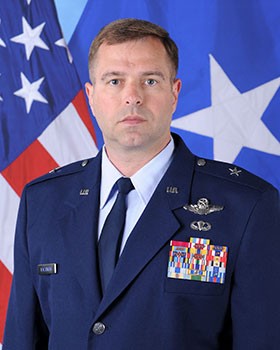
- Courtesy Photo
- Dave Baczewski
Sibilia went on to give what amounted to an endorsement of Knight, whom she noted had 35 years of military experience and was an "active duty leader" in the Guard, a point she mentioned twice.
Knight rose from his chair, and the chamber filled with applause.
Moments later, Graham received a decidedly more sparse introduction. Rep. Leland Morgan (R-Milton) rose to say that Graham, a constituent of his visiting from Grand Isle, was also running for adjutant general. That was it.
After an awkward pause, the chamber applauded for Graham.
"That was a little limp," Graham said later of Morgan's comparatively brief comments.
House Speaker Mitzi Johnson (D-South Hero) explained that she found out about Sibilia's plan to introduce Knight to the body only a few minutes before the House convened.
Because she didn't feel it was appropriate for her as speaker to introduce Graham, a constituent of hers, she asked Morgan, the junior representative from her district, to do the honors — despite the fact that he supports Knight.
In an effort to level the playing field, Stevens said, his committee plans to hold a public forum February 5 to give candidates the chance to introduce themselves and answer questions.
Meanwhile, legislators and the governor alike have suggested reforms to the process.
Sen. Jeanette White (D-Windham) introduced a bill last week that would set minimum qualifications for the adjutant general position. A candidate would have to be a resident of Vermont; have attained the rank of lieutenant colonel; and be an active member of the Army or Air Force, National Guard or Reserves, or be eligible to return to such service. In addition, a candidate would have to be a graduate of or eligible to enroll in one of the handful of national institutions of higher learning for military officers, such as the Air War College or the Army War College.
Cray said it was demeaning to him and a waste of the legislature's time when it considered someone with no military background for the job in 2013. Setting minimum qualifications just makes sense, he argued.
"I've long advocated for such qualification being required of candidates to ensure the people applying for the job can actually do it," Cray said.
Gov. Phil Scott supports that notion, as well as establishing a process that would shift the ultimate appointment decision to him, similar to how judges are picked in the state. Judges are appointed by the governor from a list provided by the Judicial Nominating Board and require confirmation by the Senate.
Speaker Johnson agrees that some type of vetting process is needed to deepen legislators' understanding of the candidates. But she doesn't want to see it narrowed to the point where legislators feel excluded.
"As chaotic and unsystematic as it can be, I think it's still a better process than a bunch of people privately submitting letters of intention and résumés to a governor who interviews them and individually, quietly chooses one and just announces it," Johnson said.
For all the system's flaws, there remains some fondness for the way Vermont exercises civilian control over the leadership of the modern version of the state's storied militia.
"It's an odd thing for our citizen legislators to have the opportunity to pick the person who is going to be the highest-ranking military officer in the state," McCarthy said. "But there's also something very Vermont about it."
Related Stories
Got something to say?
Send a letter to the editor
and we'll publish your feedback in print!
More By This Author
About The Author

Kevin McCallum
Bio:
Kevin McCallum is a political reporter at Seven Days, covering the Statehouse and state government. He previously was a reporter at The Press Democrat in Santa Rosa, Calif.
Kevin McCallum is a political reporter at Seven Days, covering the Statehouse and state government. He previously was a reporter at The Press Democrat in Santa Rosa, Calif.
Speaking of...
-

Vermont Lawmakers Choose New Sergeant at Arms in Close Vote
Mar 1, 2024 -

Statehouse Sergeant at Arms Janet Miller Is Set to Step Down
Feb 27, 2024 -

Vermont Lawmakers Are Focused on Disaster Response, but Covering the Costs May Be Tough
Jan 10, 2024 -

Vermont Lawmakers May Have to Meet Growing Problems With a Shrinking Budget in 2024
Dec 20, 2023 -

National Guard to Buy Vermont State University Land for New Facility
Aug 4, 2023 - More »
Comments (2)
Showing 1-2 of 2
Comments are closed.
From 2014-2020, Seven Days allowed readers to comment on all stories posted on our website. While we've appreciated the suggestions and insights, right now Seven Days is prioritizing our core mission — producing high-quality, responsible local journalism — over moderating online debates between readers.
To criticize, correct or praise our reporting, please send us a letter to the editor or send us a tip. We’ll check it out and report the results.
Online comments may return when we have better tech tools for managing them. Thanks for reading.
- 1. A Former MMA Fighter Runs a Wildlife Rehabilitation Center in Cabot News
- 2. Scott Official Pushes Back on Former State Board of Ed Chair's Testimony Education
- 3. Home Is Where the Target Is: Suburban SoBu Builds a Downtown Neighborhood Real Estate
- 4. Burlington Budget Deficit Balloons to $13.1 Million News
- 5. Legislature Advances Measures to Improve Vermont’s Response to Animal Cruelty Politics
- 6. Vermont Rep. Emilie Kornheiser Sees Raising Revenue as Part of Her Mission Politics
- 7. Dog Hiking Challenge Pushes Humans to Explore Vermont With Their Pups True 802
- 1. Totally Transfixed: A Rare Eclipse on a Bluebird Day Dazzled Crowds in Northern Vermont 2024 Solar Eclipse
- 2. Zoie Saunders, Gov. Scott’s Pick for Education Secretary, Faces Questions About Her Qualifications Education
- 3. Don't Trash Those Solar Eclipse Glasses! Groups Collect Them to Be Reused 2024 Solar Eclipse
- 4. State Will Build Secure Juvenile Treatment Center in Vergennes News
- 5. Vermont Awarded $62 Million in Federal Solar Incentives News
- 6. Queen of the City: Mulvaney-Stanak Sworn In as Burlington Mayor News
- 7. New Jersey Earthquake Is Felt in Vermont News


























